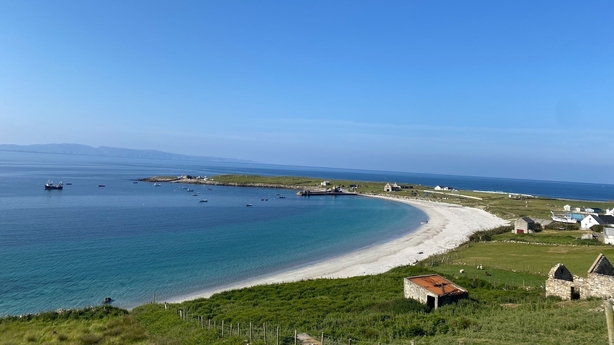A new national policy on offshore islands has been launched by Minister for Rural and Community Development Heather Humphreys.
Its key aim is to revitalise population levels on the islands which have seen a decline in population since 1996 of almost 13%, from 3,145 to 2,740.
The 23 islands from Donegal to Cork also have a higher-than-average age profile with 20% of islanders aged over 65 compared to an average of 12% nationally.
A lack of employment, housing and limited access to public and social services has inhibited population growth on the islands and the new policy aims to tackle these and other issues to create conditions which would encourage young people to live, work and raise families on the islands.

Revitalising population levels is the first of five objectives in the policy; the others are to diversify island economies; enhance health and wellbeing services; empower island communities and build smart sustainable futures.
Ultimately the goal is to see more people living and working on the islands with good career prospects, regardless of where their employer is headquartered.
The vision is also to see islands contributing to and benefiting from the transition to a low carbon economy and a climate-neutral society, with island communities, especially young people, having an active role in shaping the future for Ireland's islands.
Speaking in Árainn Mhór, Ms Humphreys said it was the first whole-of-government policy of its kind in 27 years and it is full of "time-bound actions" from other departments.
She said she wanted to see more living, working, and choosing to raise a family on the islands.
Ms Humphreys said remote working has been a "game-changer" for the islands and she wanted to encourage and build on that.
She said it was about "quality of life" and "breathing new life into our islands" and it was an "exciting time" for the islands.
Ms Humphreys also said it was important that the National Broadband Plan was rolled out and that in the meantime remote working hubs on many of the islands are an "excellent place" where high-speed broadband is available.
The policy highlights the importance of digital connectivity for islands and points out opportunities for diversification which could improve employment opportunities in areas such as tourism, culture and heritage, agri-food and the broader marine economy.
It also mentions the audio-visual industry in light of the success of the film Banshees of Inisherin as offering potential to attract new productions to the islands.
The Design and Crafts sector is also included with the Design and Crafts Council of Ireland (DCCI) due to establish a special "Island Guild", a community-based design and craft network to focus on the development of the islands designers and makers.
Islanders will be entitled to claim a maximum of €60,000 rather than €50,000 on the mainland for vacant properties, and €84,000 for derelict properties as opposed to €70,000 on the mainland.
This will come into effect on 1 July and will be applied retrospectively to any existing applications from offshore islands.
The islands policy will include a commitment to the delivery of high-speed broadband to island schools, digital hubs and Broadband Connection Points.
There will be supports for every island community to develop remote working facilities so that people can live and work within their own community.
Supports will also be included for the development of outdoor recreation facilities such as cycling, swimming and walking.
E-Health Pods are planned to give residents improved access to health appointments while ensuring access to mental health services for island communities is also included.
Reacting to the plan, Nóirín Uí Mhaoldomhnaigh, Bainisteoir of Comharchumann Oileán Árainn Mhór said remote working will be key as people returned to the island during lockdown.
She believes that if the homes and services are there people will opt to live on islands like Árainn Mhór and this will benefit schools and the economy.
She also welcomed the minister's commitment to addressing issues of planning permission, which she said was a big problem on the island, and she also felt that the increased Croí Conaithe grants for vacant and derelict buildings on islands was a positive measure.
Aisling Moran, Chair of Comhdháil Oileáin na hÉireann, which represents 16 offshore islands said they were very positive about the new policy which she said addressed the main issues affecting islanders including housing and employment.
She said that if those areas are tackled then the goals of the policy to have more people living, working and raising families on our islands, are very much achievable.
Ms Moran also welcomed the fact that the document was a "living document" as the minister described it and that representatives of the islands will have an input into monitoring it and how it progresses.







